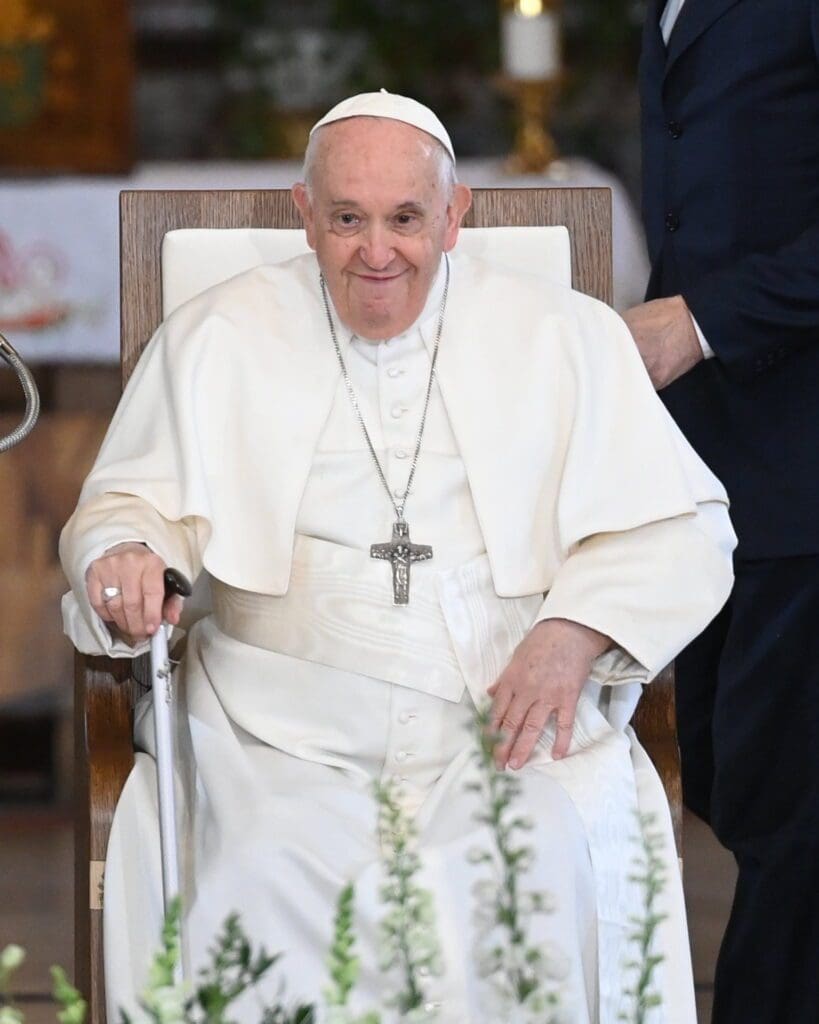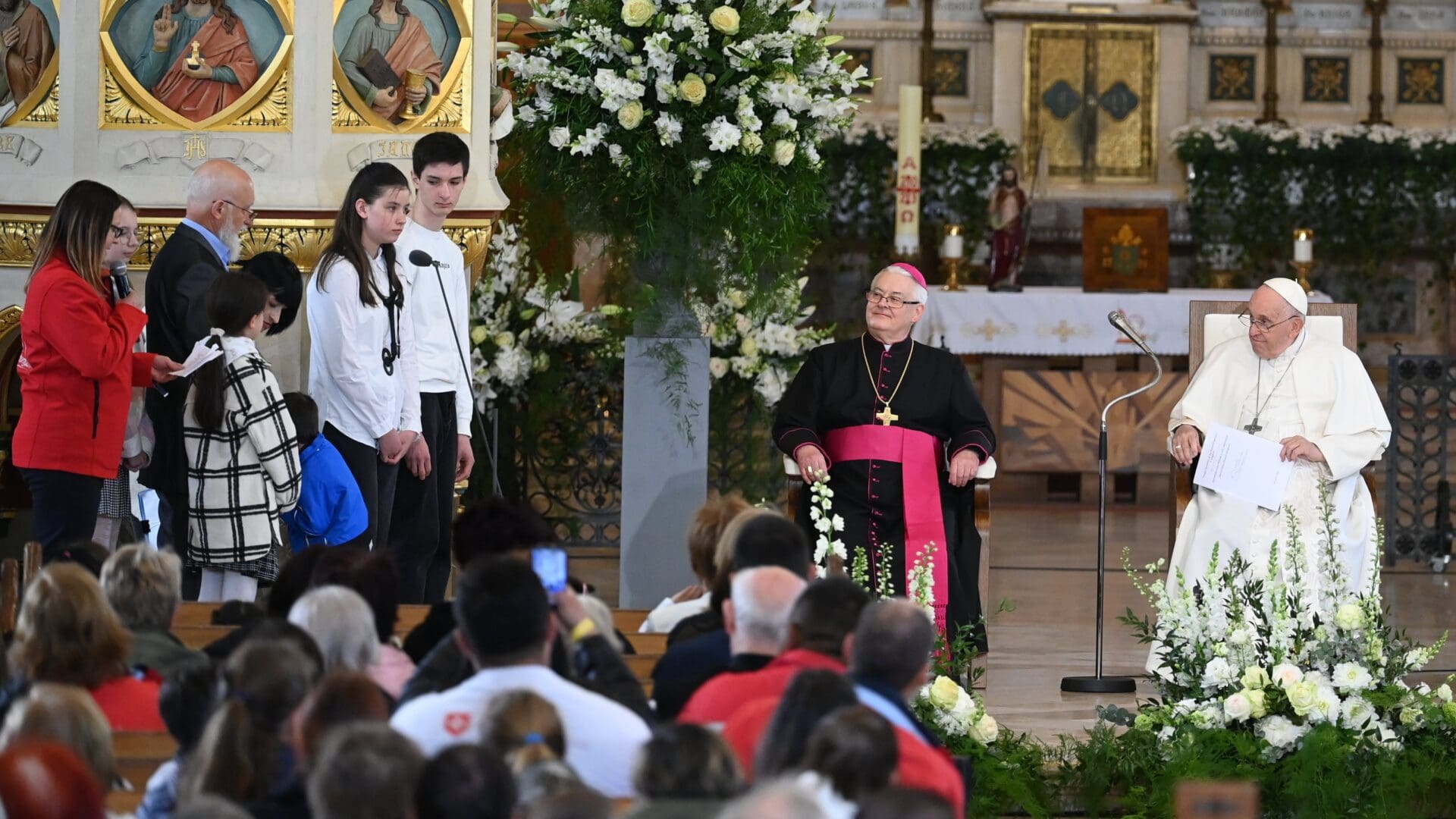On the second day of his Apostolic Visit to Hungary, Pope Francis he met with a group of refugees from Ukraine, Pakistan, Iraq, Nigeria and several other countries, as well as with less fortunate people assisted by Catholic associations. About a six hundred refugees and poor people gathered at St. Elizabeth’s Church in Rózsák Square in Budapest on Saturday, 29 April, to listen to Pope Francis’ words.

Some of those present at the church also offered their testimonies, such as Oleg and his family, who had fled the horrors of the war in Ukraine. Reflecting on the Ukrainian family’s story, the pontiff said:
‘Their journey to the future brought them to Hungary and began with a journey of memory
because Oleg remembered the warm welcome he received in Hungary years ago when he came to work here as a cook,’
the pope remarked, adding that that Oleg decided to take his family to safety in Hungary because he remembered the generous hospitality with which he was received earlier.
Highlights – Budapest, 29 April 2023 – Meeting with Poor People and Refugees
Uploaded by Vatican News on 2023-04-29.
‘The memory of love received rekindles hope and inspires people to embark upon a new journey in life,’ Pope Francis highlighted.
Reflecting on the testimony of Hungarian Zoltán and his wife about how they dealt with the challenges of homelessness and marginalisation with the help of a Catholic charity, the pope reminded that we should never forget that the poor are at the heart of the Gospel.
The poor challenge those more fortunate to go beyond ‘spiritual egotism’, Pope Francis said, and declared: ‘Genuine faith is challenging, it takes risks, it leads us to encounter the poor and, by the witness of our lives, to speak the language of charity.’
He recalled that Saint Elizabeth also ‘spoke the language of charity’. Like St Francis of Assisi, who was an inspiration to Saint Elizabeth,
‘she was touched and transformed by her encounter with Christ, she felt repelled by worldly riches and vanities, and sought to renounce them and to care for those in need…She not only sold her possessions but also spent her life serving the poor, lepers and the sick, personally caring for them, even carrying them on her own shoulders. That is the language of charity.’
The pope stressed:
‘We need a Church that is fluent in the language of charity,
that universal language which everyone can hear and understand, even those farthest from us, even those who are not believers.’
At the end of his remarks, Pope Francis expressed gratitude for the Catholic Church in Hungary’s ‘generous and wide-ranging service to charity.’
‘You have built up a network that links pastoral workers, volunteers, parish and diocesan Caritas organizations, while also engaging prayer groups, communities of believers, and organisations belonging to other confessions, yet united in the ecumenical fellowship that is born of charity,’ he noted. ‘Thank you too, for having welcomed—not only with generosity but also with enthusiasm—so many refugees from Ukraine,’ the pope added.








